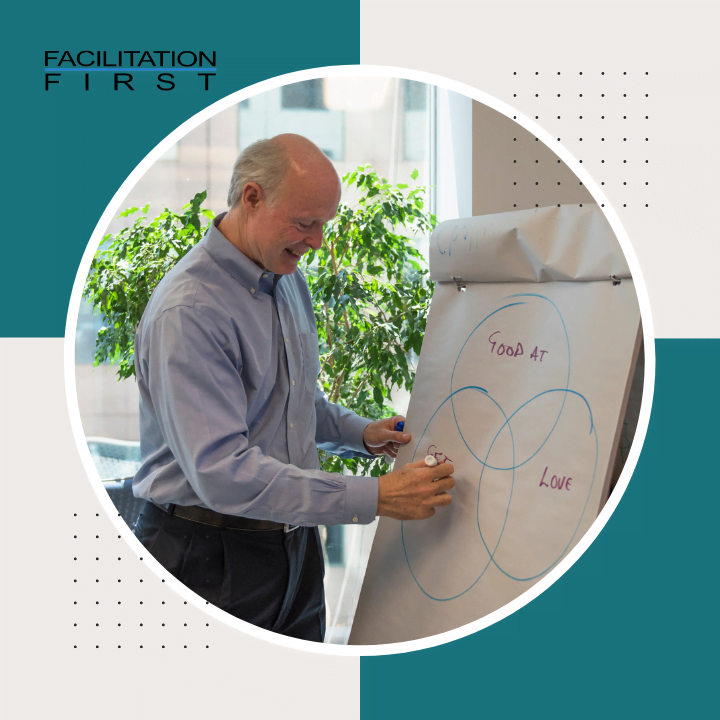What do You Learn in a Facilitation Training Course?

Why Invest In Meeting Facilitation Training?
You know those courses where you go in and learn cool stuff, and then you put the book on your shelf, or you put it away in your files and you never use it again? That is not what happens in Facilitation First training courses.
In our training courses, we know and expect that you will apply our ideas, tools, and frameworks the next time you have a meeting. Even when you’re not in charge of the meeting, you can make some suggestions from the side.
If you’re running meetings, what you will learn is how to plan for them, how to start them, how to run them, and how to overcome challenges in them. You will practice all these things. And at the end, we ask people what strategies they are most likely to implement. People always have concrete things to say, and sometimes they specify the meeting date that they’re going use them on, so there is an immediate commitment to implementation.
What you’ll also learn is how to save time in your meetings, how to make people stay on track, and how to get better decisions and build stronger consensus. Some of our workshops have some time between sessions, and in that case, we ask people to report back on what they’ve already implemented in their meetings since we last met.
You basically learn the role of the process facilitator; you learn this amazing leadership job that you didn’t even know existed, and that cuts across all formal leadership jobs that are on the org chart in your organization.
You will learn about this informal leadership role that will not only help you in the short term, but can build your professional toolset, which can be used as an accelerator for your career and work performance.
Kevin Quinn, Senior Facilitation First Facilitator
Upcoming Workshops
Let us Know
Do you have a unique meeting challenge not covered by one of our blog posts? We’re always looking for different dilemmas to discuss in our articles!